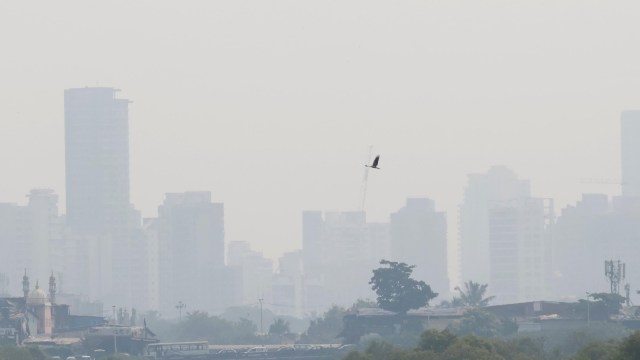
Dear Readers,
The same day, a Mumbai High Court bench took suo motu notice of a series of reports in this newspaper on the worsening air in the country’s financial capital. Till a few years ago, Mumbai’s favourable geography made sure its residents did not suffer the foul air that has become the lot for people in the capital. Climate vagaries seem to have negated this advantage. But as our reports have underlined — and the judiciary has affirmed – the elements should be apportioned only a part of the blame. The chokehold of pollution, in large measure, frames a governance failure. And, this is not just a big city problem. As public health expert Srinath Reddy pointed out in an article in this paper (To clear the air, IE, October 31), “In a 2022 list of the 50 most polluted cities put out by IQAir, a Swiss air quality information platform, 39 were Indian cities”. Over three-quarters of the country’s cities do not meet the nationally prescribed air quality standards, which, as Reddy notes, are laxer than the WHO’s yardsticks.
Polluted air has, of course, historically been one of the collateral damages of urbanisation in most parts of the world. Cities in India – and many other parts of the developing world – did not learn the lessons from their Western counterparts, and went ahead with the glib belief that economic prosperity would clean up the environment. But the challenge in India has also been to put together responsive public institutions. That’s why pollution is symptomatic of a bigger omission – not putting people’s health and well-being at the centre of urban planning. Ad-hocism – much of which is about punitive measures – remains the hallmark of pollution control in most parts of the country. Municipalities should have been at the centre stage of people-centred urbanism. The Constitution (74th Amendment) Act, 1992 asked state governments to devolve the responsibility of 18 functions, including urban planning, regulation of land use, water supply and other civic services to urban local bodies. But municipal governance has never received its due. A 2020 paper by PRS Legislative Research found that most state governments are reluctant to share power and taxes with local bodies.
The deficit, however, is not always about funds. The Brihanmumbai Municipal Corporation’s budget is more than that of several states in the country. Yet, the country’s richest municipality has hemmed and hawed about extending the metro’s waste management network beyond the enclaves of the well-heeled. This is also not about the dearth of regulations but that of enforcement of law and implementation of strategies. More worryingly, it’s about officers and workers, who should have been at the frontlines of change making, either not realising the enormity of their remit, or being ill-equipped to do so. A Climate Trends and Earth Root Foundation study, last year, found that more than 70 per cent Delhi municipality engineers weren’t aware of national policies on air pollution. Worryingly still, only a fifth of the respondents knew that foul air can cause cancer and heart diseases. The ignorance is grave – a study by University of Chicago researchers has found that foul air shaves off 12 years from the lives of Delhi’s residents.
Less than 40 per cent of the waste generated in Indian cities is treated. For a long time now, it has been known that the most important segment in the waste segregation process in metros is the waste or rag pickers. But there has never been a concerted attempt to instruct these workers on how to separate the trash into different categories. As a result, urban waste piles up in mountains that often cause fire and are breeding grounds for diseases. Targets to flatten landfills in Delhi have seen several extensions in recent years, highlighting the municipality’s ill-preparedness to deal with a longstanding bane. In recent years, the capital’s municipality has become embroiled in the Centre’s unrelenting endeavour to clip the powers of Delhi’s elected government – just another symptom of the short shrift given to the 74th Amendment Act.
Forty per cent of Indians — about 600 million people — will live in urban centres by 2030. The challenge will not just be about planning spaces for them, but making sure that people in these conurbations live healthy lives. It will be about politicians, policymakers, planners taking a leaf out of the books of the ecologists and public health experts to join the dots that they so far have failed to. The lessons from another grey beginning to the festive season should be to end the siloed approach to health and the environment.
For now, let’s hope the haze lifts soon.
Stay well,
Kaushik Das Gupta
Must-read Opinions from the week:
Indians are choking on pollution. How can it be stopped?
Maratha reservation: Why everyone wants a ‘sarkari naukri’ in New India
S Y Quraishi writes: On electoral bonds, Supreme Court must uphold Right to Information
Dear Narayana Murthy, here’s why you need to read Karl Marx, Thoreau and John Ruskin
In the Palestine-Israel war, put civilians at the centre of the story